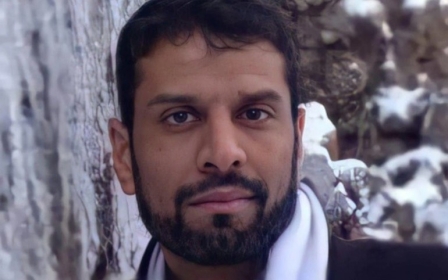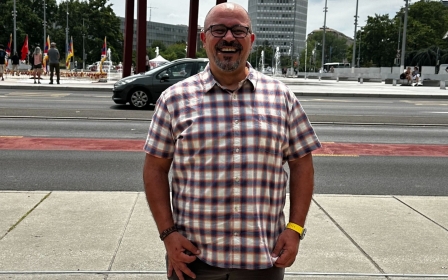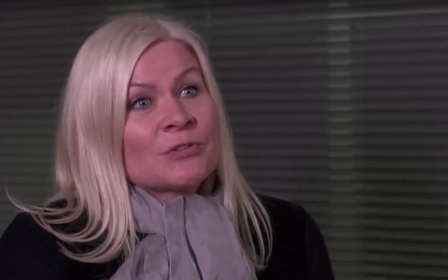Scottish police refuse to take action over Interpol chief accused of torturing Britons

Scottish police said they will take no action against the president of Interpol, despite accusations he oversaw the torture of two British citizens as the UAE police chief.
With the 92nd Interpol General Assembly taking place this week in Glasgow, Matthew Hedges and Ali Issa Ahmad - who were detained in the United Arab Emirates (UAE) in 2018 and 2019 respectively - submitted a criminal complaint requesting that Ahmed Naser al-Raisi be questioned and arrested while in the Scottish city.
Raisi, who is also inspector general of the UAE's interior ministry, is accused of being responsible for the abuse the two suffered.
Ahmad, a 28-year-old from Wolverhampton, said he was subjected to racial abuse and torture - including beatings, electrocution, cuts and burns - after being arrested in the UAE while attending an Asian Cup football match there.
It is thought that he was arrested for wearing the football shirt of Qatar, then a rival of the UAE, though the Emirati authorities have denied this.
New MEE newsletter: Jerusalem Dispatch
Sign up to get the latest insights and analysis on Israel-Palestine, alongside Turkey Unpacked and other MEE newsletters
At the time of his arrest, Hedges was a doctoral student at Durham University, researching the UAE's security apparatus after the mass Arab anti-government protests of 2011. On 5 May 2018, he was detained and imprisoned for more than six months, accused of being a British spy.
While incarcerated, Hedges says prison staff forcibly drugged him and interrogated him for up to 15 hours a day, leading him to sign false confessions. He was sentenced to life in prison by an Emirati court in November 2018 but was released five days later after a pardon.
'They should have investigated and hiding behind the fact that this has been raised by the Metropolitan Police is simply a cop out'
- Rodney Dixon KC
He still suffers from post-traumatic stress disorder as a result of the abuse and requires medication.
Despite the evidence presented, however, Scottish police this week said they would be taking no action against Raisi, saying the matter has been looked into by the Metropolitan Police.
"It is understandable that Hedges and Ahmad are rightly disappointed by the response from Police Scotland," Rodney Dixon KC, who is representing the pair, said in a statement.
"They should have investigated and hiding behind the fact that this has been raised by the Metropolitan Police is simply a cop out."
Universal jurisdiction
The complaint was filed under the principle of universal jurisdiction, which under international law allows domestic courts to prosecute individuals accused of serious crimes, including genocide and crimes against humanity, regardless of where the crime was committed.
Some countries such as Germany have used universal jurisdiction to prosecute and jail Syrian nationals involved in atrocities committed during the country's civil war. British law limits prosecutions for most international crimes to suspects who are UK residents or citizens, except for torture, which Raisi is accused of.
Both British Prime Minister Keir Starmer and Home Secretary Yvette Cooper spoke at the conference, which lasts until Thursday.
In his speech, which heavily focused on deterring smuggling, Starmer said that security had to be "rooted in our values, in respect for human rights and upholding the rule of law".
Speaking to Middle East Eye in parliament last week, Hedges said the willingness of the UK government to allow Raisi to enter the country without consequences was indicative of its "weakness."
"It shows where the power lies, where the interests lie...it's pure spinelessness, especially if there are criminal complaints open and being investigated," he said.
He said Raisi's visit to Scotland had been an opportunity for the new Labour government to show it could be firmer on the UAE and its alleged abuses.
"But they've clearly shown that's not their interest. Their interest is not in holding states accountable, it's not in pursuing that accountability, in helping people seek redress, in demonstrating ultimately the UK's global leadership," he said.
MEE contacted the Cabinet Office for comment, but received no response.
Middle East Eye delivers independent and unrivalled coverage and analysis of the Middle East, North Africa and beyond. To learn more about republishing this content and the associated fees, please fill out this form. More about MEE can be found here.





